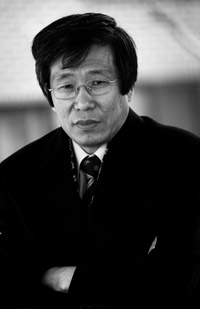 By Kim Seong-kon, Professor of English Literature
By Kim Seong-kon, Professor of English Literature As Koreans, we have every reason to be proud of ourselves. For one thing, we have achieved splendid economic development and democratization in a remarkably short period of time. Although we have not always been blessed with the greatest political leaders, we have miraculously managed not only to survive, but to thrive, overcoming numerous ordeals and crises.
Sometimes, however, we are embarrassed by certain happenings in our country. For example, as we watch our hopelessly belligerent politicians waste time and energy fighting over the Sejong City issue, we cannot help but feel ashamed that we elected such egotistic, pathetic people to represent us in the National Assembly. Experts assert that the Sejong City plan was an irrevocable mistake of the Roh administration that wasted astronomical amounts of taxpayers' money and defied the decision of the Constitutional Court. Yet our politicians continue to fight over the debunked plan for pure political gain, dragging others down instead of promoting further advancement.
We are also ashamed whenever we see the daily confrontations between the riot police and militant demonstrators wearing red headbands and wielding red banners at City Hall Square. The familiar scene, which has persisted since the 1970s and 1980s, has now become an embarrassing trademark of South Korea in the eyes of foreigners. It is quite depressing and unnerving to see a huge crowd of workers waiving red banners and chanting intimidating, hostile slogans. It is equally depressing to see the weary, exhausted faces of police officers who have to eat on the street and face danger when the crowd goes wild.
We are also ashamed to read newspaper reports that a drunken Korean man shouted racial slurs at a foreign scholar on the bus, harassing him about his body odor. Why do we not realize that we are"colored" as well, and that foreigners may find the smell of our garlic and kimchi odd? Is it not cowardly to feel small before those who have a whiter complexion, and disrespect those with darker skin? We say that only a few Koreans are racist. Yet the South Asian scholar mentioned above does not agree with the optimistic assumption. He says,"My Korean colleagues try to assure me that only a few people have racial bias in Korea. But I encounter those 'few people' so often in Korean society."
We are embarrassed that our negligent government officials post English signs without having them first proofread by a native speaker. Recently, a professor from Hallym University pointed out that the English sign attached to King Sejong's statue was written incorrectly. The caption read:"King Sejong the Great, who invented the national language, Hangeul." However"the Korean alphabet" or"the Korean writing system" is actually more appropriate than"the national language." The problem does not end there. The word"invent" is problematic as well since, strictly speaking, King Sejong did not invent Hangeul; rather, he authorized or institutionalized it. Thus Professor Alec Gordon from the United Kingdom suggested the following revision:"King Sejong instituted the creation of Hangul, the innovatory Korean writing system, in 1455."
Koreans seldom accept criticism. The Seoul City administration rejected the friendly correction, claiming nothing was wrong with the term"national language." Yet recently, they furtively changed"national language" to"Korean characters." Once again, however, Gordon points out:"The use of the word 'characters' is an analogy to the ideogrammatic writing systems of China and Japan." Instead, it is more appropriate to term Hangeul, as"the Korean alphabet" or"the Korean writing system."
The Seoul City administration tried to avoid the responsibility for the mistake by asserting that they had sent the English draft to a private domestic translation agency for proofreading. How can they trust a private domestic translation agency that very well may employ Koreans with dubious English proficiency?
It is equally embarrassing that many Koreans incorrectly believe that a tribe in Indonesia has adopted Korean as their official language. The truth is that they only borrowed the Korean alphabet as a means to express their spoken language. Strictly speaking, therefore, what they write is not Korean. Encouraged by the news from Indonesia, however, an academic association in Korea pompously held a seminar entitled,"Korean as an International Language."
Recently, a Japanese scholar boldly contended in a seminar in Seoul that it was Japanese Prime Minister Ito Hirobumi who was the terrorist, and not his assassin An Jung-geun, who killed Ito in 1909. If a Korean scholar stated in Tokyo that An was a terrorist, he would have been severely condemned and assaulted by patriotic Koreans. While we admire the Japanese intellectual's capacity and generosity, we cannot but be embarrassed by our narrow-minded, parochial patriotism.
It is easy to be proud of ourselves. But it is not easy to be ashamed of our shortcomings. Nevertheless, we should be capable of recognizing our shameful mistakes. Only then can we learn valuable lessons from our flaws, and further advance ourselves.

